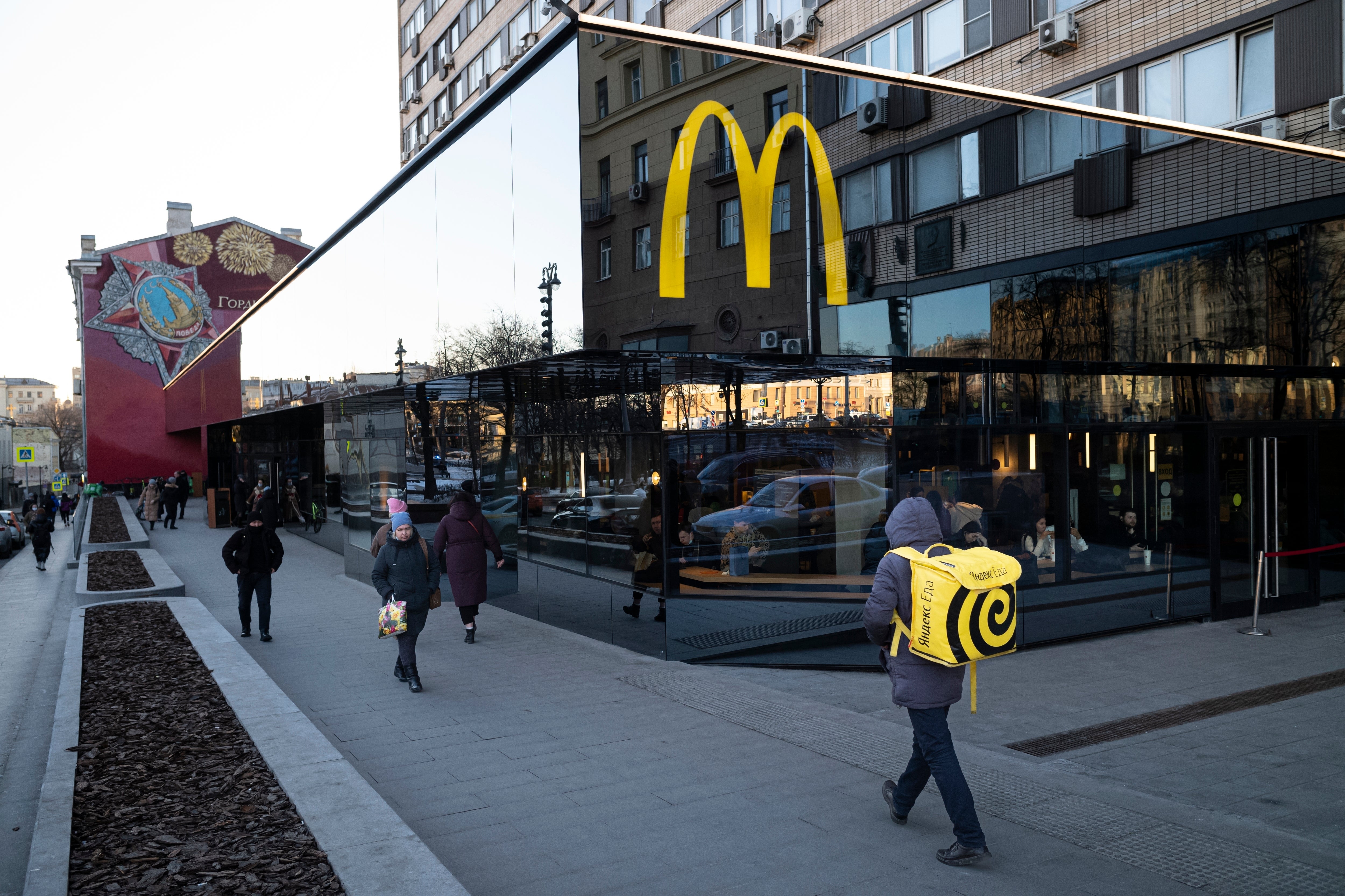How much oil does the UK import from Russia?
Government intends to phase out dependence by year’s end in opposition to war in Ukraine
As Vladimir Putin’s invasion of Ukraine becomes increasingly vicious, the punitive economic sanctions imposed on Russia by Western governments are continuing to bite, causing the ruble to plummet in value against the US dollar and Moscow’s central bank to raise its primary inflation rate and introduce capital controls.
Foreign businesses and brands are meanwhile reconsidering their commercial relationships with the country, with McDonald’s, Coca-Cola, Starbucks, Hermes, Chanel, Netflix, Spotify and Prada all severing ties in opposition to the faltering attempted conquest.
Ukraine has meanwhile published a list of other international companies still operating in Russia in the hope of shaming them into following suit.
Ending the West’s energy dependence on Mr Putin’s oil and gas exports promises to be more complex, however, with Europe already hit by inflation, the rising cost of living and spiralling gas prices before the conflict began and market instability driving up the price of petrol and diesel on the forecourt over the last two weeks.
Figures from data firm Experian Catalist showed the average cost of a litre of petrol at UK filling stations was up to 159.6p on Wednesday, up from 158.2p on Tuesday.

The average cost of a litre of diesel meanwhile reached a new high of 167.4p on Wednesday, up from 165.2p on Tuesday.
Against that backdrop, business secretary Kwasi Kwarteng nevertheless announced on Tuesday that the UK would end its import of Russian oil by the end of the year as a further punishment, saying the government was “building on our existing sanctions that are already crippling Putin’s war machine” and planned to work with the US, the EU and other trading partners to find alternative sources of hydrocarbons.
Britain would not do so with immediate effect, he said, in order to give supply chains and supporting businesses enough time to adjust to what will represent a drastic transition.
The UK imported £4 billion of Russian oil in 2021 – £3 billion of refined oil and £1 billion of crude oil – according to Office for National Statistics data.
“Russian imports account for 8 per cent of total UK oil demand, but the UK is also a significant producer of both crude oil and petroleum products, in addition to imports from a diverse range of reliable suppliers beyond Russia including the Netherlands, Saudi Arabia, and USA,” Downing Street said in a statement announcing the decision.
Norway, Canada, Sweden and Belgium are also key exporters to Britain.
Downing Street’s figure comes from the Digest of United Kingdom Energy Statistics 2020, which also reveals that Russia accounts for 18 per cent of our diesel, five per cent of jet fuel and one per cent of gas oil such as red diesel, which is used for machinery and off-road vehicles.
The government added in its statement that Russian natural gas currently accounts for 4 per cent of UK imports and said that: “Ministers are also exploring options to reduce this further.”
Russia is the world’s third-biggest oil producer behind the US and Saudi Arabia and ordinarily exports around 5m barrels of crude oil per day, more than 5 per cent of the global total, but suppliers as well as nations are now increasingly wary of dealing with the country in light of the Ukraine assault, for practical as well as moral reasons.
Traders fear that further instability developing after they have placed an order could prevent their oil from being delivered and are also concerned about complications surrounding transactions involving Russian banks under sanctions after they were excluded from the Swift payment system used to complete payments between lenders.
Russian crude is currently being offered at massive discounts on world markets but few European buyers are biting.
The Independent has a proud history of campaigning for the rights of the most vulnerable, and we first ran our Refugees Welcome campaign during the war in Syria in 2015. Now, as we renew our campaign and launch this petition in the wake of the unfolding Ukrainian crisis, we are calling on the government to go further and faster to ensure help is delivered. To find out more about our Refugees Welcome campaign, click here. To sign the petition click here. If you would like to donate then please click here for our GoFundMe page.



Join our commenting forum
Join thought-provoking conversations, follow other Independent readers and see their replies
Comments